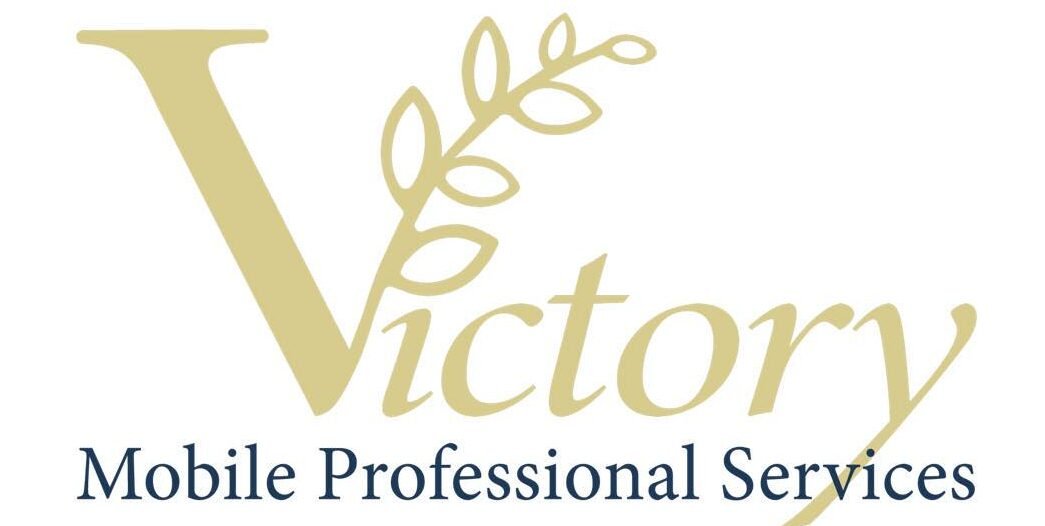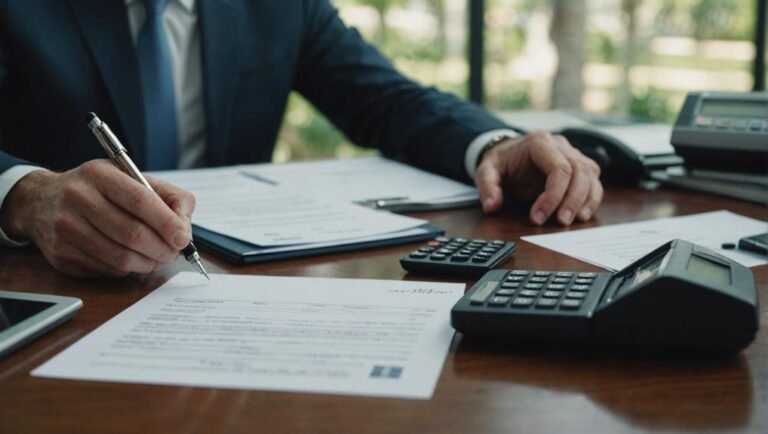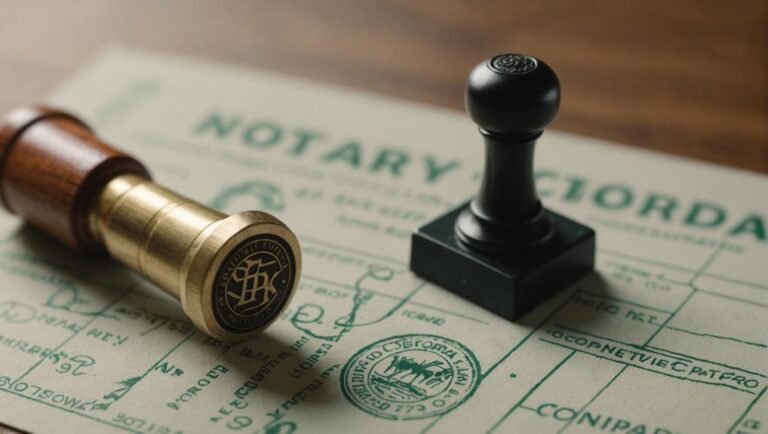In Florida, you cannot notarize your own documents as it is strictly prohibited by law. Self-notarization compromises impartiality and neutrality in notarial acts. Upholding ethical standards is essential in maintaining the integrity of notarization processes.
Key Takeaways
- Self-notarization is strictly prohibited in Florida to maintain impartiality and neutrality.
- Notaries cannot notarize their own documents to uphold ethical standards.
- Prohibition of self-notarization ensures integrity and credibility in notarial acts.
- Avoid self-notarization to comply with Florida laws and prevent conflicts of interest.
- Upholding neutrality and trustworthiness requires notaries to refrain from notarizing their own documents.
Prohibited Notarization for Family Members
Avoid notarizing documents for family members such as spouses, children, and parents as Florida law explicitly prohibits such actions to maintain impartiality and ethical standards.
Notarizing for relatives can compromise impartiality, a key aspect of the notarial role. The law prohibits notarizing documents for beneficiaries or individuals who stand to benefit from the transaction, ensuring fairness and transparency in the notarization process.
Upholding ethical standards and the law means refraining from notarizing forms for family members to prevent any conflicts of interest or perceptions of bias. By adhering to these guidelines, notaries help maintain the integrity of the notarial system and build trust in the documents they notarize.
Notarizing Own Signature
Notarizing your own signature is strictly prohibited in Florida to uphold the principles of impartiality and neutrality in notarial acts. Florida law explicitly forbids notaries from notarizing documents for themselves, emphasizing the importance of maintaining impartiality in the notarization process.
This prohibition against notarizing one's own signature is in place to make sure that notaries act with integrity and neutrality when performing their duties. Violating this rule constitutes a breach of notary ethics, as self-notarization compromises the impartiality required for notarial acts.
By avoiding self-notarization, notaries help uphold the integrity of the notarial system and demonstrate their commitment to ethical standards. It's essential for notaries in Florida to refrain from notarizing their own documents to adhere to the ethical guidelines set forth to maintain the trust and reliability associated with notarial acts.
Notarizing Forms for Beneficiaries
To maintain the necessary impartiality in notarial acts, it's vital to refrain from notarizing forms for beneficiaries in Florida. Notarizing documents for individuals who benefit from the transaction can compromise the neutrality and legality of the notarized documents.
Upholding ethical standards in the notarial process includes ensuring that notaries remain impartial and don't have a financial interest in the transaction. By notarizing forms for beneficiaries, notaries risk violating the fundamental principle of impartiality, which is vital for the integrity and validity of notarized documents in Florida.
It's important to prioritize the neutrality of the notarial act over personal relationships or interests to maintain the trustworthiness of the transaction. To adhere to the ethical standards and legal requirements in Florida, it's necessary to avoid notarizing forms for beneficiaries and to uphold the impartiality expected in notarial acts.
Financial Interest in Transactions
Maintaining impartiality and neutrality in transactions is important, especially when there's a financial interest involved. In Florida, notarizing documents where you have a personal stake in the transaction is prohibited. Having a financial interest disqualifies you from notarizing such documents.
Notaries are required to uphold impartiality and neutrality in all transactions, particularly those involving financial interests. It's essential to avoid conflicts of interest to guarantee the integrity of notarial acts. Notarizing documents with a financial interest at hand compromises the necessary impartiality expected from notaries.
Role of Notaries as Impartial Witnesses
Impartiality stands as a cornerstone of the notary's role as a witness in the notarization process, ensuring the authenticity and integrity of documents. Notaries are entrusted with the task of upholding neutrality to maintain the validity of notarized documents. It's imperative for notaries to avoid conflicts of interest by refraining from notarizing documents for themselves or close family members.
By adhering to principles of impartiality, notaries enhance the trustworthiness of notarial acts. Their primary responsibility lies in verifying identities, witnessing signatures, and certifying the validity of documents without bias. Upholding impartiality is essential to prevent any compromise in the integrity of the notarization process.
Notary Responsibilities and Procedures
One of the main duties of notaries in Florida is to strictly adhere to regulations that prohibit them from notarizing their own documents. As a notary, maintaining impartiality and neutrality is essential when performing notarial acts. You must always sign, date, and affix your seal to documents you notarize to validate their authenticity.
It's considered a violation of ethics for notaries to notarize their own signatures due to the conflict of interest it presents. Additionally, notaries are prohibited from conducting notarial acts on documents in which they have a personal interest.
Adhering to these notary responsibilities and procedures guarantees the integrity of the notarization process and upholds the principles of impartiality and trustworthiness. Remember to always prioritize the legality and correctness of notarized documents over personal convenience to maintain the highest standards of ethical conduct in your role as a notary.
Notary Advertising and Financial Interest
To abide by regulations and uphold ethical standards, notaries in Florida must be cautious when advertising their services to avoid any conflicts of interest related to financial matters. Maintaining impartiality and neutrality is essential in all notarization practices to guarantee the integrity of the documents.
Here are some key points to ponder:
- Prohibited Actions: Notaries are forbidden from notarizing documents in which they've a financial stake to prevent any ethical violations or conflicts of interest.
- Ethical Standards: Understanding the significance of avoiding notarizing documents with a financial stake is crucial for upholding ethical standards in the notarial profession.
- Advertising Strategies: Effective advertising strategies for notaries should steer clear of any transactions or services where a financial stake exists to comply with regulations and preserve integrity in the notarization process.
Notary Marriage and Witnessing
Florida notaries are authorized to solemnize marriages, allowing them to perform marriage ceremonies as part of their notarial duties. This means that notaries in Florida have the legal ability to officiate weddings.
However, it's important to note that notaries may choose not to provide notary services for marriages if they have personal objections or other valid reasons.
Moreover, Florida laws strictly prohibit notaries from notarizing a signature without the person being physically present. This requirement ensures the integrity and authenticity of the notarization processes.
Additionally, procedures are in place for proof of execution by subscribing witnesses in cases where the principal signer is unable to sign in the presence of the notary.
Understanding these regulations surrounding notary marriage and witnessing is essential for both notaries and individuals seeking notarization services in Florida. By adhering to these guidelines, the notarization process can be conducted smoothly and in compliance with the law.
Proper Notarization Procedures
Shifting from the discussion on notary marriage and witnessing, understanding the proper notarization procedures in Florida is fundamental for guaranteeing compliance with legal requirements and upholding ethical standards.
When it comes to notarizing documents in Florida, there are key procedures that must be followed:
- Maintain Impartiality: Notaries must remain neutral and unbiased, avoiding notarizing their own documents to uphold ethical standards.
- Ensure Transparency: Clearly indicating the identification used in the notarial certificate is essential for transparency and compliance with Florida law.
- Uphold Integrity: Following the proper procedures for notarization is vital to maintain the integrity of notarial acts and guarantee legal validity.
Notary Seal and Document Attestation
Notaries in Florida must make certain that their notary seal is properly affixed to documents when providing document attestation services. When attesting to photocopies, it's vital to verify that they're used for proper purposes and comply with notarial certificate guidelines. Notaries should decline attesting to a copy if they suspect it will be used improperly. It's important to follow these guidelines to maintain the integrity and legality of the notarization process.
Additionally, when notarizing documents intended for other states or countries, notaries must adhere to the specific requirements of those jurisdictions. This ensures that the notarization is valid and recognized across borders. By following proper procedures and guidelines, notaries can fulfill their responsibilities accurately and ethically, upholding the trust placed in them by the public.
Properly affixing the notary seal and confirming document attestation is done correctly are essential aspects of the notarization process in Florida.
Frequently Asked Questions
Can a Notary Notarize Their Own Documents in Florida?
You cannot notarize your own documents in Florida. Doing so violates notary ethics, poses self-notarization risks, and leads to legal implications. Uphold professional standards, avoid conflicts of interest, and fulfill notary responsibilities by following witness requirements and best practices.
What Are the New Florida Notary Rules?
When exploring the new Florida notary rules, you'll encounter a landscape rich with advancements like remote notarization and electronic signatures. Embrace these changes as opportunities to enhance your notary public duties and prevent fraud effectively.
Can I Notarize a Handwritten Document in Florida?
In Florida, notarizing a handwritten document yourself is not allowed due to legal implications. As a notary public, your responsibilities include upholding state regulations, ensuring document validity, and preventing fraud. Remember, self-notarization compromises notary ethics and signature verification.
How Much Can a Florida Notary Charge per Document?
When notarizing in Florida, a notary public can charge a maximum fee of $10 per document. It is important to adhere to state regulations, uphold notary ethics, and verify document validity while ensuring proper signature verification.
Conclusion
To wrap up, it isn't allowed to notarize your own documents in Florida. Notaries are required to act as impartial witnesses, and notarizing your own signature would compromise this role.
An example of the results of not following this rule is a recent case where an individual attempted to notarize their own will, leading to legal complications and the document being deemed invalid.
It's essential to adhere to proper notarization procedures to avoid any legal issues.






